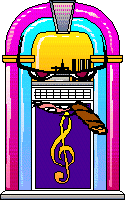
Uh, oh! You either don't have the Flash plug-in installed, or you have it disabled.
Otherwise, there'd be a cute lil' streaming audio player on the left, rather than this message.
Os Mutantes
A arte de Os Mutantes
CD
(Universal Music/Mercury, 2006)
Back in the late 16th Century, in the early days of this blog, listener VirginiaM requested something rare by Os Mutantes. Most of their original catalog of six studio albums and one live (from 1968 through 1976) has been available, off-and-on, on CD and LP since the beginning of this century. In addition to those seven, two unreleased albums from that period have surfaced, plus a live and a studio album since they reunited in 2006.

Like many bands that began in the 1960s and continued into the next decade (and beyond), Os Mutantes went through some interesting changes, which included three fairly distinct phases. They began life as a psychedelic, Tropicália combo, morphed into a psychedelic, rock/hard rock band, then shifted into a progressive rock group.
- Phase I: 1968 to 1970
- Os Mutantes
- Mutantes
- A divina comedia ou ando meio desligado
- Tecnicolor [recorded in 1970 but not released until 2005]
- Phase II: 1971 to 1973
- Jardim elétrico
- Mutantes e seus cometas no país do baurets
A
e oZ
[recorded in 1973 but not released until 1992]
- Phase III: 1974 to 1978
- Tudo foi feito pelo sol
- Ao vivo
- Intelligent, Murderous Ants: 2006 to present
- Live - Barbican Theatre, London, 2006
- Haih... or amortecedor
So, anyhow, finding a rarity that I could actually, you know, afford would not be an easy task. Luckily, not long before VirginiaM's request, I just happened to have purchased an Os Mutantes collection, A arte de Os Mutantes, with a tiny handful of non-LP tracks, and today's jukebox selection is one of them.

The info (in Portugese, dang it) in the booklet seems to indicate this tune is from 1968. A bit of on-line research leads me to believe it was from a 7" EP released between their first album, 1968's Os Mutantes, and their second, 1969's Mutantes.
No doubt, the more observant of my listeners have noticed that they ditched the Os from their name between their first and second albums. No biggie; it's just Portugese for The. Since I've not been able to find a picture of a record cover for the aforementioned EP, or even a label (as in the paper stuck to the center of the vinyl disc), I've decided to leave the Os in place for this song. If that is incorrect, my deepest apologies, and, as always, please, no lawsuits.
Interestingly, to me at least, the Os has returned twice. The first time, on the cover of their double-decade-delayed album A
e o Z
and again for their 2009 studio comeback (and quite good) album Haih... or amortecedor.
























